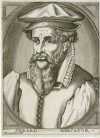 Mercator was a Flemish geographer, mathematician, and cartographer who perfected the first map using the Mercator projection, the translation of the spherical earth to a two-dimensional flat plane. In it, parallels and meridians are rendered as straight lines spaced to produce an accurate ratio of latitude to longitude at any point. It permits mariners to steer a course over long distances without continually adjusting compass readings. What map-related term was coined by Mercator? Discuss
Mercator was a Flemish geographer, mathematician, and cartographer who perfected the first map using the Mercator projection, the translation of the spherical earth to a two-dimensional flat plane. In it, parallels and meridians are rendered as straight lines spaced to produce an accurate ratio of latitude to longitude at any point. It permits mariners to steer a course over long distances without continually adjusting compass readings. What map-related term was coined by Mercator? Discuss
Source: The Free Dictionary
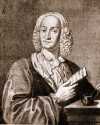 Vivaldi was an Italian composer, considered the greatest master of Italian baroque. He became a priest in 1703 and spent most of his life after 1709 in Venice, teaching and playing the violin and writing music for the Pietà, a music conservatory for orphaned girls. Although he produced vocal music, including 46 operas, Vivaldi is best known for instrumental music, including The Four Seasons and nearly 500 concertos for violin and other instruments. Why was he nicknamed the “Red Priest”?
Vivaldi was an Italian composer, considered the greatest master of Italian baroque. He became a priest in 1703 and spent most of his life after 1709 in Venice, teaching and playing the violin and writing music for the Pietà, a music conservatory for orphaned girls. Although he produced vocal music, including 46 operas, Vivaldi is best known for instrumental music, including The Four Seasons and nearly 500 concertos for violin and other instruments. Why was he nicknamed the “Red Priest”?  Tata was an Indian entrepreneur and pioneer industrialist known as “the father of Indian industry.” He began his career at his father’s trading firm but formed his own company in 1868 and had early success in the textile industry, buying, selling, and setting up cotton mills. He went on to establish the Tata Group of companies, which now has interests in steel, automobiles, information technology, energy, tea, and hotels. Tata died in 1904 while on a trip where?
Tata was an Indian entrepreneur and pioneer industrialist known as “the father of Indian industry.” He began his career at his father’s trading firm but formed his own company in 1868 and had early success in the textile industry, buying, selling, and setting up cotton mills. He went on to establish the Tata Group of companies, which now has interests in steel, automobiles, information technology, energy, tea, and hotels. Tata died in 1904 while on a trip where? 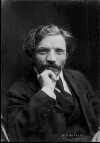 One of the great Yiddish writers, Aleichem is best known for his humorous tales of life among the poverty-ridden and oppressed Russian Jews of the late 19th and early 20th centuries. His works include five novels, many plays, and some 300 short stories. In the last years of his life, Aleichem lived in the US and died in New York City, where, through his work, he helped to found the Yiddish Art Theater. Many of his works have been adapted for the stage, most notably what musical?
One of the great Yiddish writers, Aleichem is best known for his humorous tales of life among the poverty-ridden and oppressed Russian Jews of the late 19th and early 20th centuries. His works include five novels, many plays, and some 300 short stories. In the last years of his life, Aleichem lived in the US and died in New York City, where, through his work, he helped to found the Yiddish Art Theater. Many of his works have been adapted for the stage, most notably what musical? 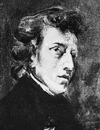 Chopin was a Polish composer and one of the great masters of Romantic music. He published his first composition at age seven and began performing at eight. He moved to Paris when he was 21 and became a celebrity with his first concert the following year. Among the most significant composers in the history of the piano, Chopin’s innovations in fingering, use of the pedals, and general treatment of the keyboard were highly influential. With what French writer did he have a long relationship?
Chopin was a Polish composer and one of the great masters of Romantic music. He published his first composition at age seven and began performing at eight. He moved to Paris when he was 21 and became a celebrity with his first concert the following year. Among the most significant composers in the history of the piano, Chopin’s innovations in fingering, use of the pedals, and general treatment of the keyboard were highly influential. With what French writer did he have a long relationship?  Shore was an American singer, actress, and TV personality who enjoyed widespread popularity during the Big Band era of the 1940s and 50s. She was the first singer of the era to achieve success as a solo artist, producing over 80 hit songs, including “Baby It’s Cold Outside,” before beginning a four-decade career in television. Shore was a hit with TV audiences as well and went on to earn nine Emmys, a Peabody Award, and a Golden Globe. How did Shore, born Frances Rose, earn the stage name Dinah?
Shore was an American singer, actress, and TV personality who enjoyed widespread popularity during the Big Band era of the 1940s and 50s. She was the first singer of the era to achieve success as a solo artist, producing over 80 hit songs, including “Baby It’s Cold Outside,” before beginning a four-decade career in television. Shore was a hit with TV audiences as well and went on to earn nine Emmys, a Peabody Award, and a Golden Globe. How did Shore, born Frances Rose, earn the stage name Dinah? 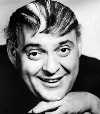 Mostel was an American comic actor who combined a large paunch with acrobatic grace and an expressive face. He initially worked both on Broadway and in film but was blacklisted in Hollywood for his political views and worked primarily in New York City theater after 1955. He had lead roles in the musicals A Funny Thing Happened on the Way to the Forum and Fiddler on the Roof. In 1968, he starred in the Oscar-winning Mel Brooks film The Producers. What was Mostel’s real name?
Mostel was an American comic actor who combined a large paunch with acrobatic grace and an expressive face. He initially worked both on Broadway and in film but was blacklisted in Hollywood for his political views and worked primarily in New York City theater after 1955. He had lead roles in the musicals A Funny Thing Happened on the Way to the Forum and Fiddler on the Roof. In 1968, he starred in the Oscar-winning Mel Brooks film The Producers. What was Mostel’s real name? 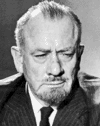 Steinbeck was an American writer perhaps best remembered for his strong, Pulitzer Prize-winning sociological novel The Grapes of Wrath, which is widely considered one of the great American novels of the 20th century. His later novels include Cannery Row, The Pearl, and East of Eden. He received the Nobel Prize for Literature in 1962. One of Steinbeck’s last works was Travels with Charley, a travelogue about a road trip across America. Who was Charley?
Steinbeck was an American writer perhaps best remembered for his strong, Pulitzer Prize-winning sociological novel The Grapes of Wrath, which is widely considered one of the great American novels of the 20th century. His later novels include Cannery Row, The Pearl, and East of Eden. He received the Nobel Prize for Literature in 1962. One of Steinbeck’s last works was Travels with Charley, a travelogue about a road trip across America. Who was Charley? 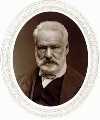 Hugo was a French poet, dramatist, and novelist. The son of a general, he was an accomplished poet before age 20. With his verse drama Cromwell in 1827, he emerged as an important figure in Romanticism. His best-known novels are The Hunchback of Notre Dame, an evocation of medieval life, and Les Misérables, the story of the convict Jean Valjean. Their immense popularity made him the most successful writer in the world at that time. Why was Hugo forced into exile in 1851?
Hugo was a French poet, dramatist, and novelist. The son of a general, he was an accomplished poet before age 20. With his verse drama Cromwell in 1827, he emerged as an important figure in Romanticism. His best-known novels are The Hunchback of Notre Dame, an evocation of medieval life, and Les Misérables, the story of the convict Jean Valjean. Their immense popularity made him the most successful writer in the world at that time. Why was Hugo forced into exile in 1851? 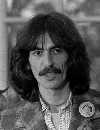 Harrison was a British rock singer, guitarist, and songwriter, best known as a member of the Beatles from 1962 to 1970. Although John Lennon and Paul McCartney were the Beatles’ main songwriters, Harrison, “the quiet Beatle,” generally wrote or sang lead on a few songs per album. His later compositions included hits such as “Here Comes the Sun” and “Something.” Harrison also penned “While My Guitar Gently Weeps,” which features what guest musician on lead guitar?
Harrison was a British rock singer, guitarist, and songwriter, best known as a member of the Beatles from 1962 to 1970. Although John Lennon and Paul McCartney were the Beatles’ main songwriters, Harrison, “the quiet Beatle,” generally wrote or sang lead on a few songs per album. His later compositions included hits such as “Here Comes the Sun” and “Something.” Harrison also penned “While My Guitar Gently Weeps,” which features what guest musician on lead guitar?